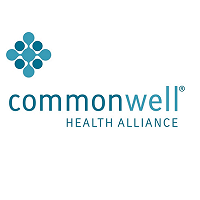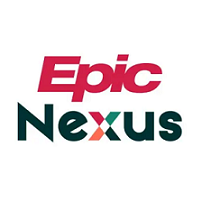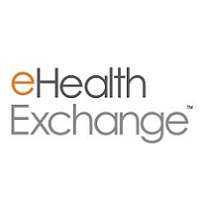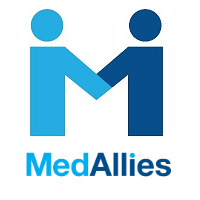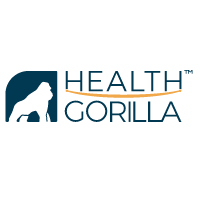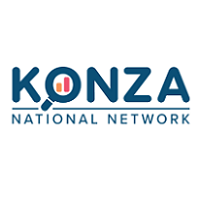We have now past the 19 year mark in our quest for healthcare interoperability. Under an executive order from president G W Bush, the ONC was established and Dr. David Brailer was dubbed “America’s first Health Information Czar.” The Meaningful Use program was then born out of the HITECH Act and Merit-Based Incentive Payment System was then born our of the MACRA legislation. And then information sharing from the CURES Act. And now the release of Trusted Exchange Framework and the Common Agreement (TEFCA). All trying to move our healthcare system to the digital age, better outcomes, controlling and reducing costs, and patient access to their health data. It has not been an easy road and the debate of the journey will never end.
Industry and Contract News
HHS Expands TEFCA by Adding Two Additional QHINs
February 12, 2024: Seven QHINs will now safely and securely exchange critical health information for patient care. CommonWell Health Alliance and Kno2 can immediately begin supporting the exchange of data under the Common Agreement’s policies and technical requirements along with the other designated QHINs. QHINs are the pillars of TEFCA network-to-network exchange, providing shared services and governance to securely route queries, responses, and messages across networks for health care stakeholders including patients, providers, hospitals, health systems, payers, and public health agencies.
HIE and Public Health Incentive Program
To accelerate public health interoperability using scalable solutions, and to recognize the investments needed to innovate, eHealth Exchange is offering a financial incentive for the first 5 Health Information Exchanges or state/local Public Health Agencies.
Feb. 16, 2024: U.S. Reps. Mike Kelly (R-PA) and Bill Foster (D-IL) introduced the Patient Matching and Transparency in Certified Health IT (MATCH IT) Act of 2024, bipartisan legislation that would improve patient safety and privacy by decreasing patient misidentification and promoting interoperability, all without increasing burdens to providers and health systems. This would improve standardization of patients’ demographic elements entered into certified health IT products, and create an anonymous, voluntary system to measure patient match rates across the healthcare ecosystem. In previous Congressional sessions, Reps. Kelly and Foster introduced amendments similar to the MATCH IT Act, which were passed by voice vote in the House of Representatives. Read the full bill.
Spotlight on Community Networks
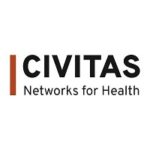 The Network for Regional Healthcare Improvement (NRHI) and the Strategic Health Information Exchange Collaborative (SHIEC) announced a formal affiliation between the two organizations to form a new organization named Civitas Networks for Health. The organization serves as a platform for local nonprofit health collaboratives and health information exchanges to grow and thrive. Read their latest news. Follow them @civitas4health.
The Network for Regional Healthcare Improvement (NRHI) and the Strategic Health Information Exchange Collaborative (SHIEC) announced a formal affiliation between the two organizations to form a new organization named Civitas Networks for Health. The organization serves as a platform for local nonprofit health collaboratives and health information exchanges to grow and thrive. Read their latest news. Follow them @civitas4health.
Mark your calendars for Civitas 2024 in Detroit on October 15-17, 2024 and keep an eye on your inbox for early-bird rates.
State HIE News
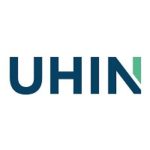 1,000,000 MYUHIN Claims
1,000,000 MYUHIN Claims
MYUHIN crossed one million claims submissions in 2023. Our billing solution empowers thousands of healthcare providers and billers to check eligibility and submit claims from anywhere. Click below to learn about all of MYUHIN’s benefits and predictable pricing.
Manifest MedEx Launches the California ADT Network
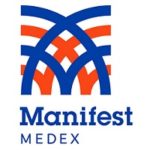 Manifest MedEx (MX), California’s largest nonprofit Qualified Health Information Organization (QHIO), is launching the California ADT Network — a no-cost, electronic ADT notification exchange — to help organizations exchange ADT data in compliance with the DxF and to substantially scale the sharing of ADT alerts across the state.
Manifest MedEx (MX), California’s largest nonprofit Qualified Health Information Organization (QHIO), is launching the California ADT Network — a no-cost, electronic ADT notification exchange — to help organizations exchange ADT data in compliance with the DxF and to substantially scale the sharing of ADT alerts across the state.
Hires and Openings
Jonathan Smith, MPH Appointed to Board of Directors
KONZA National Network, a Designated Qualified Health Information NetworkTM that facilitates the seamless national exchange of comprehensive medical information, announced the appointment of the newest member to its Board of Directors, Jonathan Smith, M.P.H.
eHealth Exchange
Active in all 50 states, the eHealth Exchange is the largest query-based, health information network in the country. It is the principal network that connects federal agencies and non-federal organizations, allowing them to work together to improve patient care and public health. They have an open position for:
- Interoperability Product Manager
Reports to: eHealth Exchange Vice President of Interoperability Adoption
FLSA Status: Exempt, Full Time
Supervisory Responsibility: N/A
Health Gorilla
Health Gorilla aspires to cut through the noise and disrupt the healthcare information technology space – making interoperability possible and ensuring access for developers, providers, and patients. Join them in their quest to improve patient and physician satisfaction, care delivery, clinical and operational outcomes, and health equity. View all their current job openings.
ClinicalConnect HIE
ClinicalConnect HIE is looking for a Systems Analyst Intermediate to join their team to establish new health equity services for our health information exchange, and to support our existing service lines. This position will primarily work from home/remote; however, will require at times, on-site work.
Contexture
Contexture is a nonprofit organization that provides strategic, technical and administrative support to communities committed to advancing health through information sharing. As the leading health information exchange for Arizona and Colorado, Contexture is the largest health information organization in the western region. They currently have an opening for a Chief Legal Officer & Privacy Officer.
Louisiana Public Health Institute
The Louisiana Public Health Institute (LPHI) is a statewide, non-profit organization that has been promoting the health and well-being of Louisianians since 1997. Their 100+ employees work alongside 500+ partner organizations at the local, state, and national levels to leverage our broad expertise in public health to achieve their mission of ensuring that everyone has fair and just opportunities to be healthy and well. They have an opening for: Associate Director, Data Strategy and Services.
Upcoming Events
KONZA National Network
When: Monday, March 4, 2024 4:00 – 5:00pm ET
Register for this event.
TEFCA HIE Office Hours with KONZA – Join them for TEFCA HIE Office Hours, a monthly opportunity for you to join a live webinar where they will provide support and answer all your TEFCA and QHIN-related questions. Onboarding HIEs to TEFCA has its unique challenges, spanning technical, policy and contract considerations, and they are here to support you through the process. Each session will focus on a different QHIN topic relevant to HIEs with half the time reserved for Q&A. Topic for January 26, 2024: QHIN to HIE Contracts
RCE Monthly Informational Call
When: Tuesday, March 19, 2024 12:00 – 1:00 pm ET
Register for this event.
The Recognized Coordinating Entity (RCE) hosts a public informational call as an opportunity to share information about the progress to-date on the third Tuesday of each month. View previous calls.
14th Annual 2024 State HIT Connect Summit
When: April 2, 2024 – April 4, 2024
Where: The Baltimore Hilton Inner Harbor
The 2024 State HIT Connect Summit will explore how states utilize emerging technologies, ideas, processes, and change management approaches to drive transformative, sustainable HHS ecosystem transformation.
ONC's Cures Act Final Rule
In May of 2020 the 21st Century Cures Act: Interoperability, Information Blocking, and the ONC Health IT Certification Program released by the ONC and published in the Federal Register.
The TEFCA Players
ONC Recognized Coordinating Entity (RCE)
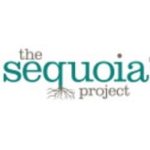 The Recognized Coordinating Entity (RCE) – The Sequoia Project (@sequoiaproject)is responsible for developing, implementing, and maintaining the Common Agreement component of the Trusted Exchange Framework and Common Agreement (TEFCA). The Common Agreement is the baseline technical and legal requirements for health information networks to share electronic health information and is part of the 21st Century Cures Act (Cures Act).
The Recognized Coordinating Entity (RCE) – The Sequoia Project (@sequoiaproject)is responsible for developing, implementing, and maintaining the Common Agreement component of the Trusted Exchange Framework and Common Agreement (TEFCA). The Common Agreement is the baseline technical and legal requirements for health information networks to share electronic health information and is part of the 21st Century Cures Act (Cures Act).
In addition they will collaborate with ONC to designate and monitor Qualified Health Information Networks (QHIN), modify and update an accompanying QHIN Technical Framework, engage with stakeholders through virtual public listening sessions, adjudicate noncompliance with the Common Agreement, and propose sustainability strategies to support TEFCA beyond the cooperative agreement’s period of performance.
On August 28, 2023, the ONC awarded The Sequoia Project 5-Year TEFCA RCE Contract to continue their services.
RCE Resource Library – which includes a guide to the Common Agreement, Standard Operating Procedures (SOPs), technical documents, and other resources that make up TEFCA’s rules of the road. Start your journey to next generation interoperability here.
Designated QHINs as of February 2024
Interoperability Market
According to Allied Market Research, the healthcare interoperability solutions market size was valued at $5,320.0 million in 2020, and is expected to reach $21,544.6 million by 2030, registering a CAGR of 14.9% from 2021 to 2030. Interoperability in healthcare refers to timely and secure access, integration and use of electronic health data so that it can be used to optimize health outcomes for individuals and populations. As populations around the world age and people live longer, interoperability and data sharing are going to become increasingly critical for delivering effective healthcare. Interoperability is the ability of two or more systems to exchange health information and use the information once it is received.
According to the report published by Fior Markets, the global healthcare data interoperability market is expected to grow from USD 2.83 billion in 2020 and to reach USD 5.80 billion by 2028, growing at a CAGR of 9.38% during the forecast period 2021-2028. The primary reasons driving healthcare interoperability market growth include a growing focus on patient care, a growing need to tighten healthcare costs, and government measures to improve patient experience of treatment. System interoperability, information interchange, and data availability are all important factors in improving health outcomes. Individual health data is mobilized throughout the whole range of care providers in health organizations, enabling coordinated, safe, and high-quality treatment that supports payment reforms, transparency efforts, and individuals’ ability to control their health.

